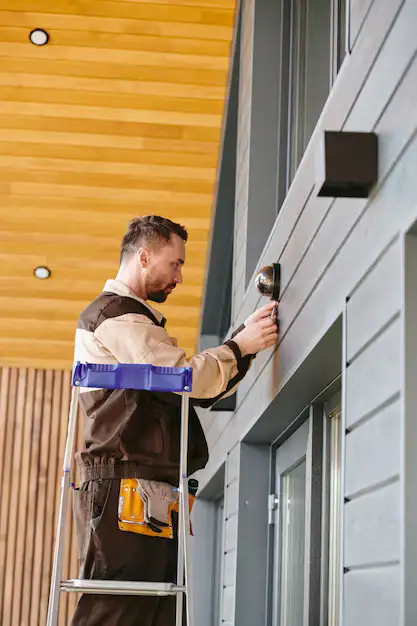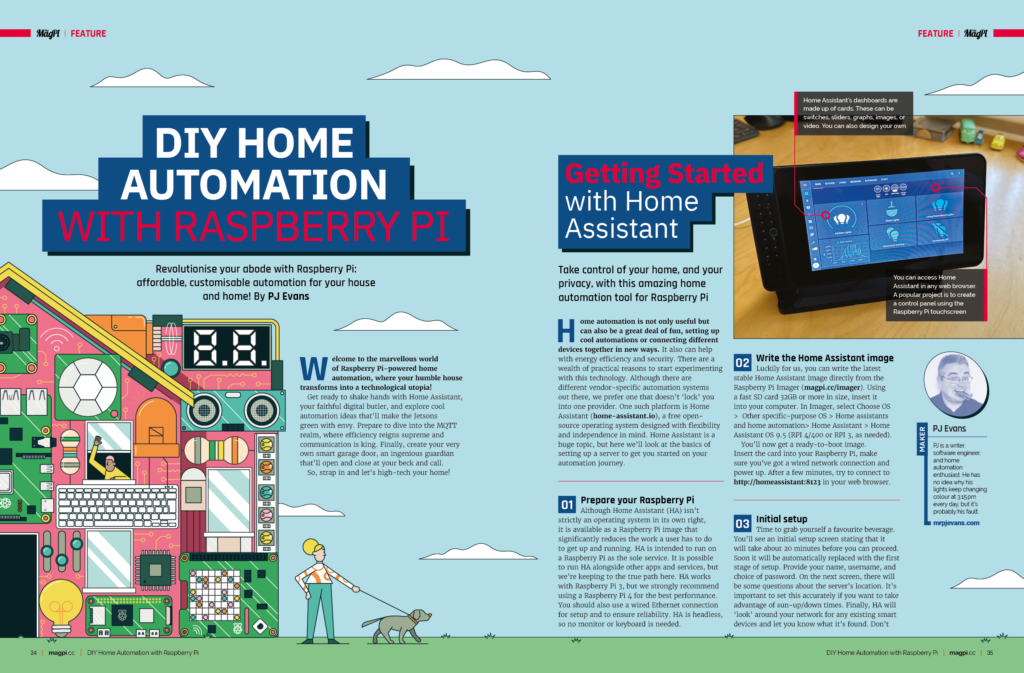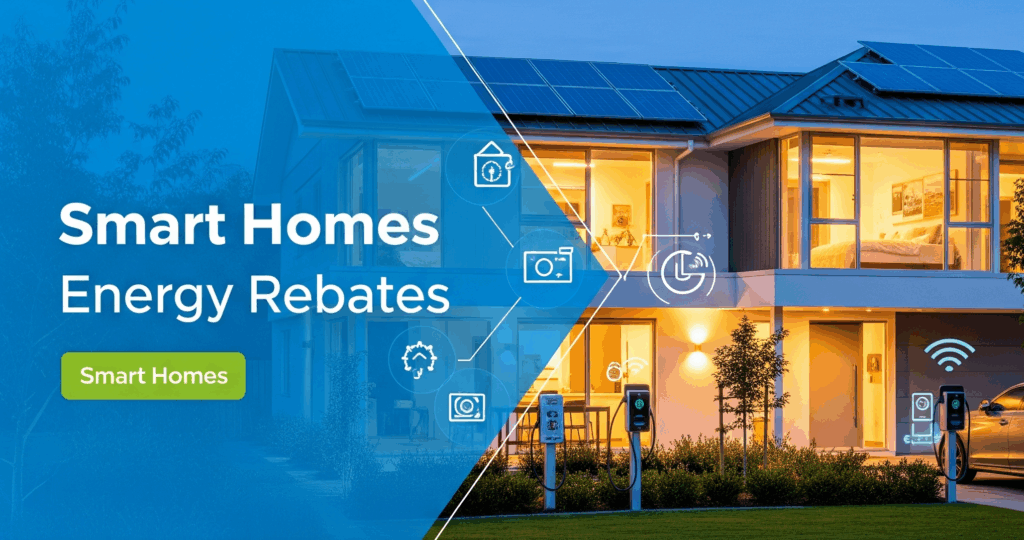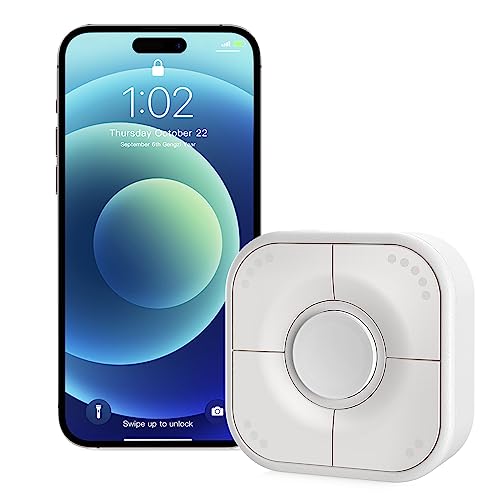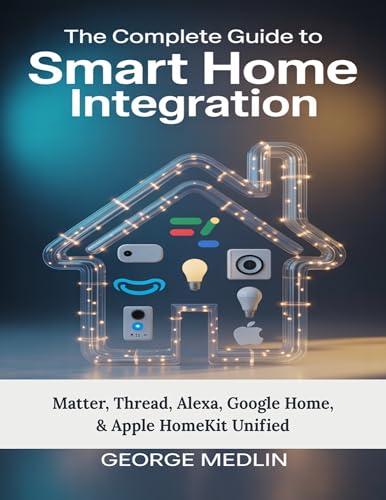Keeping your home safe isn’t just about installing a security system and forgetting it. Your home security needs regular care and attention to work effectively.
Imagine feeling confident every time you lock your door, knowing your family and belongings are truly protected. You’ll discover simple, practical steps to maintain your home security. These easy tips will help you avoid costly mistakes and give you peace of mind.
Ready to take control of your home’s safety? Let’s dive in.
Choosing The Right Security System
Picking a security system is important for home safety. It protects your family and valuables from harm.
There are many types of systems with different features. Knowing what fits your needs helps you decide.
Types Of Security Systems
Security systems come in various forms. Each type offers different ways to keep your home safe.
Common types include alarms, cameras, and smart locks. Some systems connect to a monitoring service.
- Wired systems use cables for all parts
- Wireless systems connect using Wi-Fi or radio signals
- Monitored systems alert a company if there is a problem
- Unmonitored systems sound an alarm only at your home
Features To Look For
Good security systems have certain features that improve safety. Look for these before buying.
Important features include easy control, strong sensors, and fast alerts. Some systems offer mobile app access.
- Motion detectors to spot movement inside or outside
- Door and window sensors to detect openings
- Video cameras with night vision for clear images
- Remote control through smartphone apps
- Backup power in case of electricity loss
- Alerts by phone call, text, or email
Professional Vs Diy Installation
Some people hire experts to install systems. Others do it themselves to save money.
Professional installation ensures proper setup and testing. DIY installation is flexible and can be quicker.
- Professional installers check your home for the best setup
- DIY kits come with instructions for easy setup
- Professional services may include ongoing support
- DIY systems let you choose and change features easily
- Installation cost is higher with professionals
- DIY may need more time and effort
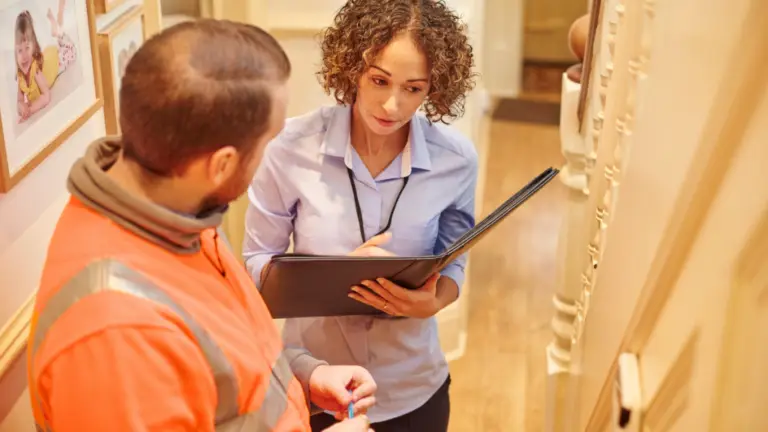
Credit: www.koorsen.com
Regular System Testing
Regular testing of your home security system helps keep your home safe. It finds problems early before they cause trouble.
Testing your system often ensures all parts work well. This includes sensors, alarms, cameras, and software updates.
Testing Sensors And Alarms
Check each sensor to see if it detects motion or opening doors. Make sure alarms sound loud and clear.
Test sensors in different rooms and on all entry points. This keeps the whole house protected.
- Walk past motion sensors to trigger them
- Open doors and windows with sensors
- Listen for alarm sounds during tests
- Replace batteries if sensors do not respond
Checking Camera Functionality
Look at your security cameras to confirm they record clear video. Make sure the view covers all important areas.
Test night vision and camera angles. Check if the live feed works on your phone or computer.
- Check video quality during day and night
- Move cameras to cover blind spots
- Test remote viewing apps for access
- Clean lenses for better picture clarity
Updating Firmware And Software
Keep your security system updated with the latest firmware and software. Updates fix bugs and improve security.
Check for updates regularly and install them. This helps your system run smoothly and stay protected.
- Check manufacturer websites for new updates
- Enable automatic updates if possible
- Restart devices after updates install
- Review update notes to understand changes
Securing Doors And Windows
Keeping your home safe starts with strong doors and windows. These are the main ways intruders can enter.
Regular maintenance and upgrades help protect your home. Focus on making entry points hard to open without permission.
Reinforcing Entry Points
Use solid materials like metal or hardwood for doors. Weak doors are easy to break or kick in.
Install strong strike plates and deadbolt locks. These parts stop doors from being forced open.
- Replace old door frames with reinforced ones
- Add metal bars or security grills if needed
- Check door hinges and screws regularly
Using Smart Locks
Smart locks allow keyless entry using codes or phones. They add convenience and security.
Set unique codes for family or guests. Change codes easily if you lose access.
- Choose locks with strong encryption
- Test battery life and connectivity often
- Use apps to monitor door activity
Installing Window Sensors
Window sensors alert you if a window opens or breaks. They help detect intruders early.
Place sensors on all accessible windows. Test them regularly to ensure they work.
- Use glass break sensors for added protection
- Combine sensors with alarms or notifications
- Keep sensors clean and free from obstructions

Credit: sygma.co.uk
Maintaining Outdoor Security
Keeping your outdoor area safe is important for your home. Regular maintenance helps prevent break-ins and damage.
Simple actions like checking lights and fences can make a big difference in security.
Proper Lighting Placement
Good lighting makes it harder for intruders to hide. Place lights near doors and walkways.
Use motion sensor lights to save energy and alert you to movement outside.
- Install lights at all entry points
- Keep lights bright but not blinding
- Check and replace bulbs regularly
- Use solar lights for easy installation
Trimming Landscaping
Tall bushes and trees can hide intruders. Keep plants trimmed near windows and doors.
Clear paths and sightlines improve your view and reduce hiding spots.
- Trim shrubs below window level
- Remove dead branches and leaves
- Keep trees away from roof and fences
- Maintain clear walkways and driveways
Securing Gates And Fences
Check fences and gates for damage or weak spots. Fix any loose parts right away.
Use sturdy locks on gates to stop unauthorized entry.
- Inspect fences monthly for holes or rust
- Use heavy-duty locks on all gates
- Make sure gates close tightly
- Consider adding alarms to gates
Backup Power Solutions
Backup power is vital for home security systems. It keeps your system working during power outages.
Without backup power, security cameras, alarms, and sensors may stop working. This can leave your home unprotected.
Battery Backup Options
Battery backups are common for home security. They provide power when the main supply fails.
Most systems use rechargeable batteries that last several hours. Some offer longer power with larger batteries.
- Small batteries last 4 to 8 hours
- Larger batteries can last up to 24 hours
- Rechargeable lithium-ion batteries are common
- Regular testing ensures battery health
Generator Considerations
Generators offer longer backup power than batteries. They run on fuel like gas or propane.
Choose a generator size that matches your home’s power needs. Smaller units power basic systems. Larger ones can support the whole house.
- Portable generators are easy to install
- Standby generators start automatically
- Fuel type affects runtime and cost
- Regular maintenance keeps generators ready
Ensuring Continuous Monitoring
Backup power keeps security systems online. This ensures continuous monitoring of your home.
Test your backup power regularly. This prevents failures during outages and keeps alerts working.
- Check battery charge monthly
- Run generator tests under load
- Keep fuel stored safely for generators
- Use systems with power-failure alerts

Credit: howlandhammer.com
Homeowner Responsibilities
Keeping your home safe is a key job for every homeowner. You must regularly check your security systems and stay alert.
Teaching your family how to act during emergencies helps protect everyone. Planning ahead reduces risks and stress.
Routine Security Checks
Check all locks on doors and windows often. Make sure alarms and cameras work properly.
Look for broken sensors, low batteries, or any signs of damage. Fix problems quickly to keep your home secure.
- Test alarm systems monthly
- Inspect locks and hinges regularly
- Replace batteries in devices as needed
- Trim bushes that hide entry points
Educating Family Members
Teach family members how to use security devices. Explain the importance of locking doors and windows.
Make sure everyone knows how to call for help if there is an emergency. Practice safe habits every day.
- Show how to arm and disarm alarms
- Explain fire and break-in safety rules
- Review emergency contact numbers
- Practice quick exits from the house
Emergency Preparedness Plans
Create a clear plan for emergencies. Decide where to meet outside if you must leave the house.
Keep emergency supplies ready. Include items like flashlights, first aid kits, and important documents.
- Plan escape routes for fire or break-in
- Store emergency phone numbers in one place
- Prepare a kit with water, food, and medicine
- Review and update the plan yearly
Professional Maintenance Services
Home security systems protect your family and property. Regular maintenance keeps these systems reliable and efficient.
Professional maintenance services check and fix your security devices. They help avoid failures and improve safety.
Scheduling Regular Inspections
Regular inspections find problems early. This stops small issues from becoming big risks.
Experts check cameras, alarms, and sensors. They test each part to ensure it works well.
- Set inspection dates every 3 to 6 months
- Check battery life and wiring
- Test alarm sounds and notifications
- Clean camera lenses and sensor areas
Benefits Of Expert Support
Experts have the tools and knowledge to maintain your system. They fix problems faster and better.
They also update software and improve system settings. This keeps your security up to date with new threats.
- Professional repair and replacement services
- Access to latest technology updates
- Advice on improving system performance
- Peace of mind knowing your home is safe
Cost Vs Value Analysis
Maintenance costs may seem high but save money long term. Repairs are cheaper than full replacements.
Well-maintained systems reduce false alarms and service calls. This lowers your overall expense.
| Cost Aspect | Value Provided |
|---|---|
| Regular inspections | Early problem detection |
| Professional repairs | Longer system life |
| Software updates | Better security features |
| Preventive care | Reduced emergency costs |
Frequently Asked Questions
How Often Should Home Security Be Checked?
Home security systems should be checked every six months. Regular maintenance ensures optimal performance and can prevent potential malfunctions. Scheduled checks help identify any weak points in the system. Regular updates to the software and hardware components are also crucial.
Keeping your system updated enhances security and ensures peace of mind.
What Is Included In Security System Maintenance?
Security system maintenance includes checking alarms, sensors, and cameras. Regularly testing the system ensures all components are functioning properly. Maintenance also involves updating software and replacing batteries. Cleaning cameras and sensors can prevent false alarms. Professional inspections are recommended for thorough checks and optimal performance.
Can I Maintain My Home Security System Myself?
Yes, basic maintenance can be done by homeowners. Regularly test alarms, replace batteries, and update software. Clean cameras and sensors to ensure clear images and accurate detection. However, professional inspections are recommended annually for comprehensive checks. Professionals can identify potential issues that may be missed by homeowners.
Why Is Regular Maintenance Important For Security Systems?
Regular maintenance ensures your security system functions optimally. It helps identify potential issues before they become major problems. Maintenance also ensures that all components are updated and working efficiently. This reduces false alarms and enhances system reliability. Regular checks provide peace of mind and improved safety for your home.
Conclusion
Keeping your home secure takes regular care and attention. Check locks, alarms, and cameras often. Small steps help protect your family and belongings. Stay aware of new security tips and tools. Consistent maintenance reduces risks and gives peace of mind.
A safe home feels good every day. Take action now and keep safety first. Simple habits make a big difference in home security.
18 min read

